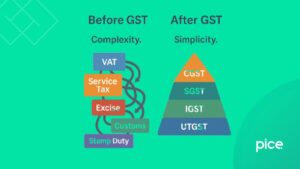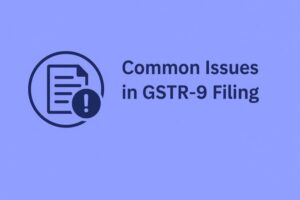Ocean Freight under GST: Applicability & Other Details
- 7 Apr 25
- 13 mins

Ocean Freight under GST: Applicability & Other Details
Key Takeaways
- GST on ocean freight is 5% (no ITC) or 18% (with ITC).
- Outbound ocean freight was GST-exempt till Sept 2022; now taxable.
- GST on import ocean freight is paid under Reverse Charge Mechanism.
- Recent amendments clarified place of supply as the recipient's location.
- Gujarat High Court ruled GST on CIF-import ocean freight unconstitutional.
The Goods and Services Tax or GST has revolutionised the tax collection system in India. It is essentially a singular, comprehensive, destination-based tax that is applicable to goods and services across the country. GST is an indirect tax that has replaced several other indirect taxes, allowing for more transparency than was previously achieved through the taxation process.
The introduction of GST in India has truly played a crucial role in transforming the tax landscape, aiding the ease of doing business and fostering a national market.
This blog shall particularly focus on the applicability of GST in regard to the shipping industry. The shipping industry assumes a major role in global transportation, accounting for over 90% of the world’s trade, only possible through shipping lines. So, keep reading to understand more about ocean freight under GST, and other associated details.
What is Ocean Freight?
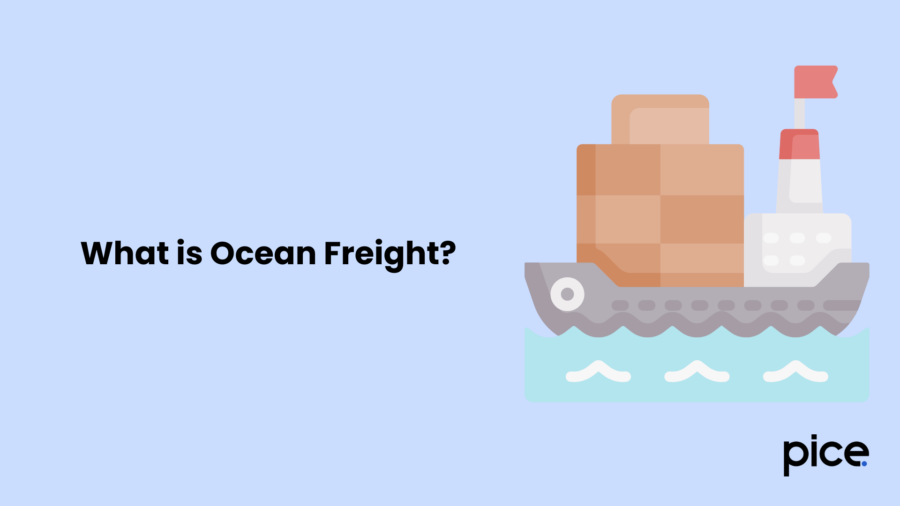
Ocean freight, in simple terms, is a mode of transport of goods and cargo by ships through shipping lines. It is important within the context of the world’s trade, most of which is propelled forward and advanced via sea.
GST on ocean freight charges is applicable when goods are transported from or to an Indian port to or from a foreign port. To be categorised under GST, there must be a supply of services or goods or both as mentioned in Section 7 of the CGST Act. Transportation of goods is an activity that is carried out via the shipping line, recognised as a service and is prone to GST applicability.
According to Notification No 11/2017 – CGST (Rate) vide entry 9 (ii), the applicable GST rate on ocean freight is 5%, subject to specific input tax credit restrictions. The service provider may also opt for levying 18% GST with ITC benefits.
Important International Trade Terms
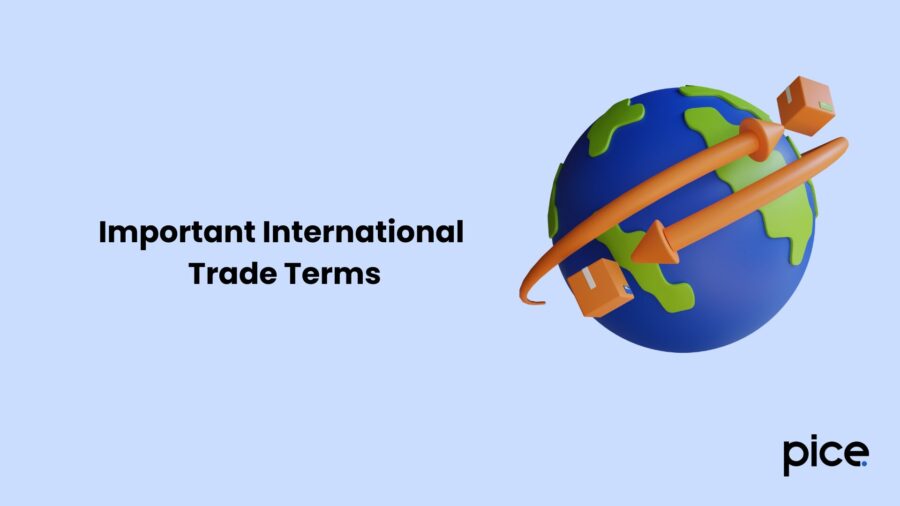
There are a few important international trade terms in relation to the shipping industry. Prior knowledge about them shall help understand the applicability of GST on freight, with more ease.
In the case of international trade, the freight expense may be categorised into two subtypes based on the transaction value:
● On the Value of CIF (Cash, Insurance and Freight) – When no separate transportation charges are imposed on the concerned importer by the supplier, the value levied on the goods is known as CIF value. The invoice amount raised by the exporter is paid off by the recipient of goods.
● On the Value of FOB (Free on board) at the Loading Port – In this case, the importer who has hired the ocean freight service provider shall pay for the transportation service of goods.
Note: There are several other types of expenses but the above-mentioned ones are the most relevant ones, in this context.
In the case of a CIF transaction, the exporter in contact with the shipping line, and pays the freight, is the recipient of the service of goods transportation. However, in the case of a FOB transaction, in which the importer has hired the ocean freight service provider, making the payment for the transportation of goods - he can be considered as the recipient of services under the GST system.
GST Applicable on Export Ocean Freight / Outbound Freight
Goods are carried via vessels and ships through shipping lines, transporting them from Indian ports to foreign ports. In this case, the outbound ocean freight is levied by the shipping lines. So, the ocean freight for transportation of goods is liable to a GST amount of 5% without ITC or 18% with ITC. Moreover, maintaining competitive pricing in global markets requires exporters to comprehend and take advantage of GST exemptions on ocean freight.
Before further discussing the impact of GST on different scenarios of outbound freight, understand which type of tax is to be discharged (IGST/CGST + SGST). One may refer to the place of supply provisions in the context of the transportation of goods by the Vessel.
According to section 12 (8) of the IGST Act, the place of supply of services by the way of goods transportation, by courier or by mail to, –
(a) A registered person, shall be the location of such a person;
(b) A non-registered person, shall be the location at which such goods are transferred over for their transportation.
If the transportation of goods is to be done to a place that’s located outside of India, the ‘place of supply’ shall also be the ‘place of destination’ of respective goods.
Amendments to Taxation on Ocean Freight
The Finance Act, of 2023 removed the provison so as to eliminate confusion regarding the availability of ITC. According to Section 13 (9) of the IGST Act, “the place of supply of services of transportation of goods, other than by way of mail or courier, shall be the place of destination of such goods.”
So, the place of supply of services/goods shall be the default/residual entry i.e., the location of the recipient of services would also be the place of supply of services in the context of transportation of goods, other than by mail/courier.
There has followed another amendment in the Finance Act, 2023 in which subsection 9 of section 13 has been omitted. However, the date of effect of this amendment is yet to be declared.
Once the new change was notified, the CBIC vide Notification No. 02/2018 IGST (Rate) dt. 25/01/2018 (inserted Entry No 20B) offered absolute exemption with no conditions, from GST liability. This was done in view of the terms of power vested under Section 11 of CGST Act, 2017 for the outbound international freight with a sunset clause. The sunset clause was valid up to 30th September 2022; the exemption was available with effect from 25th January 2018 onwards, up to 30th September 2022.
Finding effect from 1st October 2022, upon the removal of the exemption entry, the outbound transportation services are liable to GST (as before the insertion of the exemption entry). Here is a table demonstrating the same in a more comprehensive manner:
| S. No. | Description of Services | Status from 25-01-2018 - 30-09-2022 | Status from 01-10-2022 |
| 20B | Services by way of transportation of goods by a vessel from a customs station of clearance in India to a place outside India. | Exempt | Taxable |
The table below outlines the GST impact on outbound transactions:
| Transportation Service provider (shipping line) | Recipient of Transportation Service | Place of supply | Type of Tax | Taxability from 25th Jan 2018 till 30th Sep 2022 | Taxability w.e.f. 1st Oct 2022 |
| India (Gujarat) | India (AP) | AP (before 01.02.2019) / Outside India (Section- 12 (8)) | IGST / IGST | Exempted | Taxable (FCM) |
| India (AP) | India (AP) | AP (before 01.02.2019)/ Outside India (Section - 12 (8)) | CGST+SGST/IGST | Exempted | Taxable (FCM) |
| Foreign shipping line | India (AP) | Outside India (sec- 13(9)) / 2023 India (Sec 13(2) – FA 2023 | No levy (Note-1) /IGST – FA 2023 | - | Not applicable / Taxable under RCM – FA 2023 |
| India (Gujarat) | Foreigner | Outside India (Section- 13(9)) / 13 (2) – FA 2023 | IGST | Exempted | Zero-rated (Note-2) |
| Foreign shipping line | Foreigner | Not in the purview of the Indian GST | - | - | - |
Notes:
According to section 2(11) of the IGST Act, "Import of services" refers to the supply of any service, where:
● The service recipient is situated in India;
● The service supplier is situated outside of India (foreign supplier);
● The place of supply of service is in India.
According to Section 2(6) of the IGST Act, "Export of services" refers to the supply of any service when:
● The service recipient is situated outside India;
● The service supplier is situated in India;
● The place of supply of service is located outside India;
● The supplier of service/the recipient of service are not establishments of a distinct entity;
● The payment for service is received by the supplier of service in the convertible foreign exchange.
GST Applicable on Import Ocean Freight or Inbound Freight
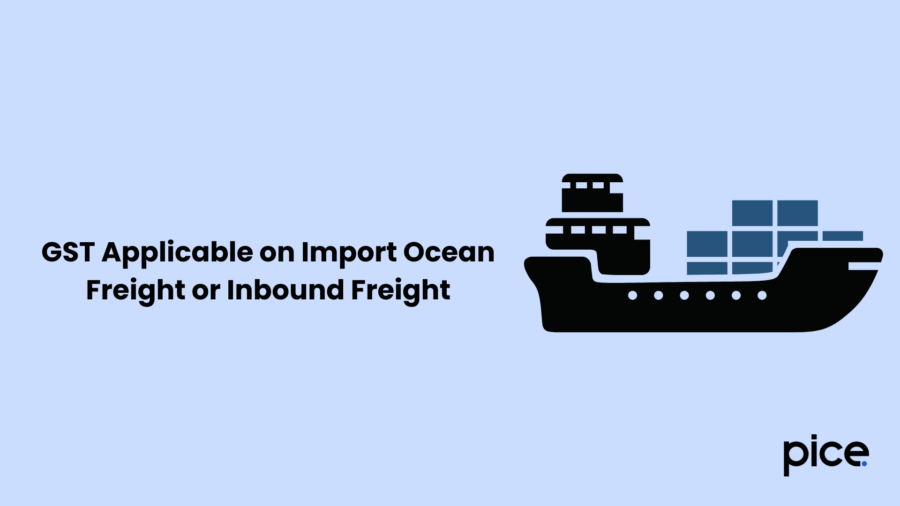
Before discussing the applicability of GST on import ocean freight, you must first understand what the phrase entails. If goods are transported via vessels or ships via shipping lines from outside of India into Indian lands, the ocean freight is levied upon by the shipping lines.
Ocean freight for the transportation of goods is subject to a GST of 5% without ITC or 18% with ITC. There is no exemption provided for inbound ocean freight, as is the case for outbound freight.
Now, let’s understand the GST liabilities on the import of services. As per Entry 1 of Notification 10/2017 – IGST (Rate), if any service supplied by an individual who is situated in non-taxable territory to any individual other than the non-taxable online recipient (i.e., import of service), the individual located in the taxable territory other than non-taxable online recipient must discharge GST under reverse charge.
The table below highlights the impact of GST on inbound freight:
| Transportation Service Provider | Recipient of Transportation Service | Place of Supply | Type of Tax |
| India (Gujarat) | India (AP) | Andhra Pradesh (Section-12(8)) | IGST (5%/18%) (FCM) |
| India (AP) | India (AP) | Andhra Pradesh (Section-12(8)) | CGST + SGST (FCM) (5%/ 18%) |
| India (AP) | Foreigner | Andhra Pradesh (Section-13(9)) / Outside India (sec-13(2) FA 2023) | CGST + SGST (FCM)/IGST (Sec 7 (5)) (FCM) (5% / 18%) / Zero-rated supply or IGST if the export conditions are not satisfied (FA - 2023) |
| Foreigner | India (AP) | Andhra Pradesh (section-13(9) of IGST Act)/ India (sec-13(2)) | IGST (RCM) (5%) (Note-1) |
| Foreigner | Foreigner | Refer (Note-2) | Refer (Note-2) |
Notes:
● According to section 2(11) of the IGST Act, the said transaction shall be covered as "Import of services". Integrated tax must be paid, abiding by section 5(3) of the IGST Act under the Reverse charge mechanism.
● The Indian Government has considered all the scenarios taxable for GST either under FCM or RCM. They have decided to charge GST on this very transaction as well, even though the service provider and service receiver are not within India.
In order to charge GST on the transaction, the CBIC vide its notification no. 10/2017, S. No. 10 where it was mentioned that in the case of "services supplied by a person located in non-taxable territory by way of transportation of goods by a vessel from a place outside India up to the customs station of clearance in India", the importer, according to conditions in the clause (26) of section 2 of the Customs Act, 1962, situated in the taxable territory would be taken as the recipient of service. They will be liable to discharge GST on RCM.
As the service provider and the service receiver both are located outside India, the importer is in the dark about the value on which tax is to be paid (i.e., Ocean Freight).
In an attempt to resolve this issue, the Indian Government by way of a Corrigendum dated 05.07.2017 issued Notification No. 8/2017 where it is specified that Ocean freight value will be deemed to be 10% of CIF Value. With the above notifications/corrigendum, the department aims to fetch the concept of deemed Ocean Freight and make it liable to tax for the importer under the Reverse charge Mechanism.
Gujarat High Court Judgement - Mohit Minerals vs Union of India (UOI)
Context: An importer was liable to pay IGST at 5% under RCM (vide notification no. 8/2017) on the ocean freight service. Take into account that both the importer as well as the supplier were located in a non-taxable territory. The importer was specifically in the business of importing coal. He had discharged the customs duty on the assessable value, which also included the ocean freight.
Plus, he was required to pay IGST on ocean freight which led to double taxation. This way, the taxpayer in dilemma filed a writ petition before the Gujarat High Court.
Gujarat High Court’s Judgement:
● Entry No. 10 of notification 10/2017 is ultra vires of section 5(3) of the CGST Act. As the goods were imported on CIF value, the importer is not to be considered the recipient of service of transportation of goods. Therefore, he is not liable to pay the GST amount.
● Tax value shall not be imposed twice in the name of the same Act. According to Section 14 of the Customs Act, customs duty is only payable on the assessable goods’ value (including freight fees). Therefore, IGST is to be paid on the freight element by incorporating it within the assessable value segment. This, charging IGST again, separately on freight amount, will lead to double taxation. This is unconstitutional.
● Both the supplier as well as the importer are located within a non-taxable territory. Therefore, the services lie outside the scope of the IGST Act. IGST shall only be applied if the supply is done within a taxable territory. As both the service provider and the service recipient are located outside India, the entire supply process has been completed outside the taxable territory. IGST cannot be imposed upon such services.
● The purchaser shall only be concerned about the purchase value. They possibly have no clue about the freight charges as they are typically directly paid off by the supplier. In this case, both parties are situated outside India and therefore, GST is not applicable.
● Under the reverse charge mechanism, IGST is not deemed payable by the Importer, in the case of a CIF transaction.
Conclusion
To conclude, it is safe to say that the taxation system of ocean freight under GST has been a complex issue. The government's initial notification making importers liable to pay a GST fee on ocean freight under the Reverse Charge Mechanism, was later challenged.
It was argued that the importer is not the recipient of transportation services if the goods are imported on the basis of CIF. The existence of controversy itself underlines the need for more comprehensive guidelines and a nuanced understanding of GST's applicability to ocean freight and international trade transactions.
💡If you want to streamline your payment and make GST payments via credit or debit card or UPI, consider using the PICE App. Explore the PICE App today and take your business to new heights.
 By
By 









